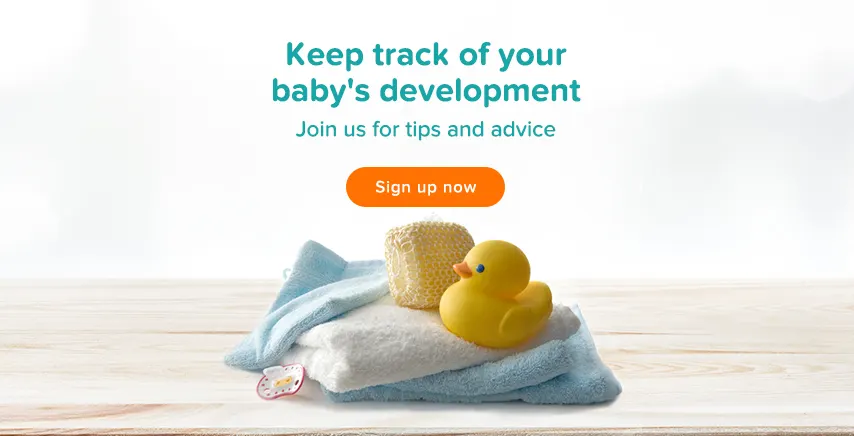Baby safety in and out of the house
Safety means looking at the environment and matching it up to your own baby's abilities at that time.
Setting up safe ways and places for your baby to explore works better than planning to watch your baby every second (an impossible task!), but some general principles of safety apply to every child.
Never leave your baby alone
Even newborns can occasionally turn over or flip around, so never leave your baby alone in the bath, on a raised surface like a changing table or on an adult bed. If the phone rings, take the baby with you (or let the answering machine pick up the call). Never leave a baby in a car by herself, even for a minute.
Never shake a baby
In the early days, it's often difficult to fathom why your baby is crying. Feeling angry sometimes is normal, but no matter how frustrated you get, never shake or jiggle your baby violently. Shaken Baby Syndrome (SBS) can have dramatic effects on your baby.
Lower the risk of sudden infant death syndrome (SIDS), or cot death
Research has shown that putting babies to sleep on their back lowers their risk of SIDS by as much as 70 per cent. You should also do the following:
Maintain a comfortable room temperature. A young infant has less capability to adjust her temperature than an adult, as she can only sweat around her head. Keep her head uncovered and remove a layer of clothing if her head is damp with sweat.
Check her sleeping area. Your baby should sleep on a firm mattress. Avoid thick quilts, duvets, pillows or sheepskin and water-beds. Keep pillows or large stuffed toys out of the cot. Avoid using bumper pads.
Quit smoking. Babies exposed to second-hand smoke are twice as likely to die of SIDS. Smokers' houses are at greater risk for fire and fire-related injuries.
breastfeeding if you want or can. Breastfed babies have a lower risk of SIDS.
Prevent choking
Follow these guidelines to avoid choking hazards:
Avoid certain foods like hot dogs, whole grapes, peanuts, hard sweets and raw carrots.
Always feed your baby sitting up, in your lap or in an infant chair. Make sure that your toddler doesn't walk or run with food in his mouth.
Avoid toys with potentially loose pieces, like eyes, buttons or latches; toys that break into pieces pose choking hazards.
Check clothes inside and out for loose strings or ribbons or anything that could wrap around your baby's neck, small fingers or toes.
Promote water safety
Never let your child out of your sight near any bodies of water. Keep her safe by doing the following:
Make the bathroom a no-go zone. Unless you're there to supervise, your children should stay out of the bathroom.
If you have one, enclose your swimming pool. Set up a fence with a locking gate that's higher than 1.2 metres (four feet).
Beware of water devices. Arm bands, bath rings, plastic rings and other devices do not ensure safety for young children. Watch your children directly at all times.
Drive safely
You and your baby spend a lot of time in the car, so it's important to take the time to make sure that the car is safe. Car accidents are THE leading cause of death and injury in children after the first month of life.
Always use a car seat that's appropriate for the age and size of your child. Almost all children that are badly injured or killed in car accidents were not properly restrained in car seats, or were sitting in car seats that were not properly installed. Install the seat according to the manufacturers' instructions, or ask a police advisor or the car dealer to install it for you. Don't ever give in to a child's desire to sit anywhere but in the car seat.
Always drive with children in the back seat, especially if you have air bags.
Never leave your child alone in the car — not even for a minute! When you're on the road, make sure that your child isn't getting too much sun through the car window.
Don't smoke in the car.
Use automatic door and window locks, and keep them set for each journey.
Be a good role model: Buckle up every time you're in the car, and drive safely.

